Can You Freeze Cabbage?
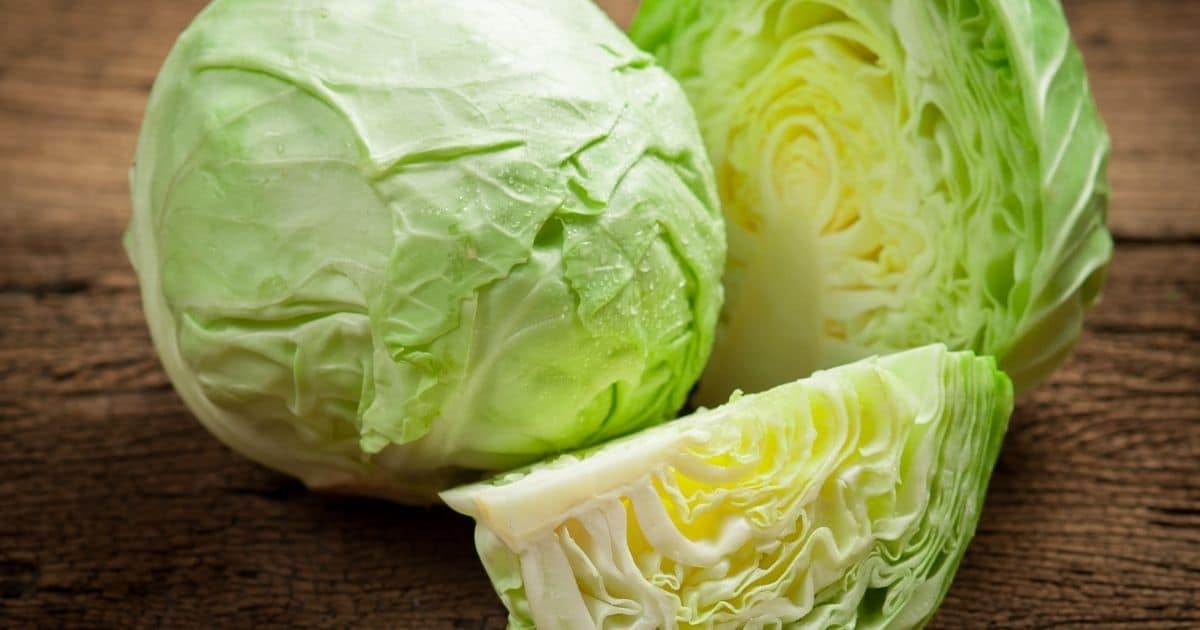
Most people enjoy eating fresh vegetables. Unfortunately, vegetables like cabbages are seasonal. The only way to enjoy making and eating these vegetables all year round is by preserving them. Now, pickling and freezing are the most common methods of preservation. However, you may be wondering, “Can you freeze cabbages?”
Like most vegetables, you can freeze cabbages and preserve their freshness anywhere from 8 weeks to 9 months, depending on your method of freezing. You can even freeze cooked cabbages and reheat them for consumption.
The process of freezing and storing cabbages is simple. That is if you properly execute all the steps of freezing. In this article, I’ll be explaining more about whether cabbages can be frozen, how to freeze them, and some more useful information on freezing cabbage.
Is It Possible To Freeze Cabbages?
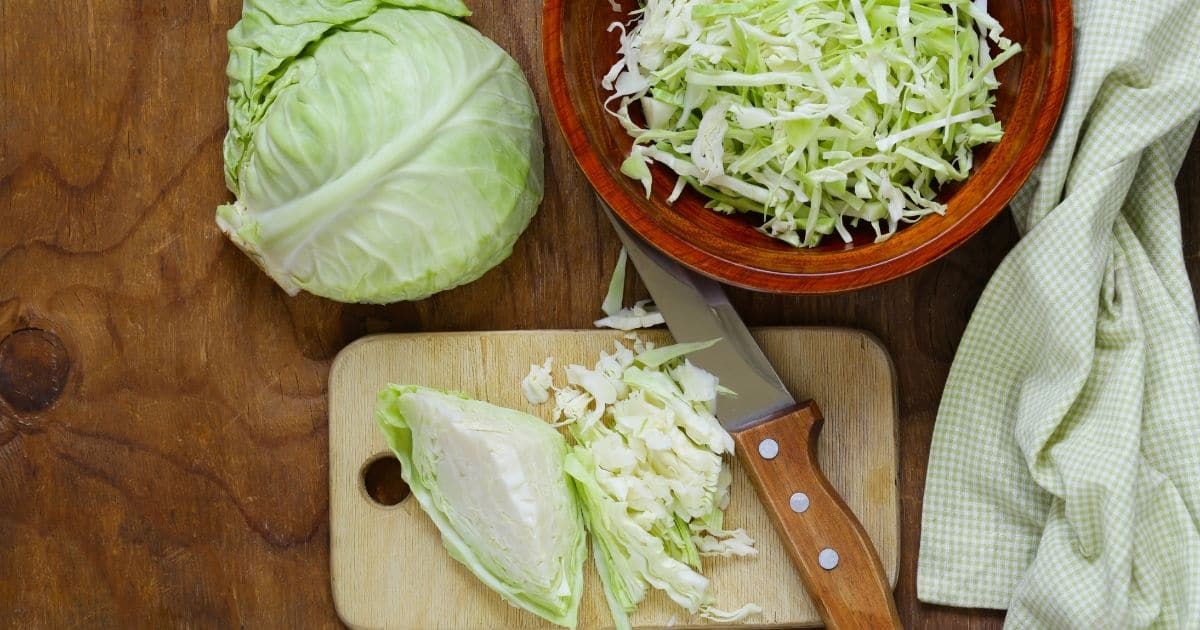
Yes, it is possible to freeze cabbages to preserve them. You can freeze both blanched and uncooked cabbages. If frozen properly, the cabbages will not spoil and can be used in making many dishes.
The freezing process can halt the growth of various microorganisms and stop enzymes that can cause spoilage. Blanching cabbages before freezing inactivates the enzymes that cause flavor changes, discoloration, and loss of nutrients. It also destroys microorganisms on the surface of cabbage.
Hence, freezing ensures that the flavour and ripeness of cabbages are maintained for a long period. Blanched cabbages can be frozen for 9 months maximum. Raw cabbages, on the other hand, can last in the freezer for about 8 weeks.
How Can You Freeze Cabbages with Blanching?
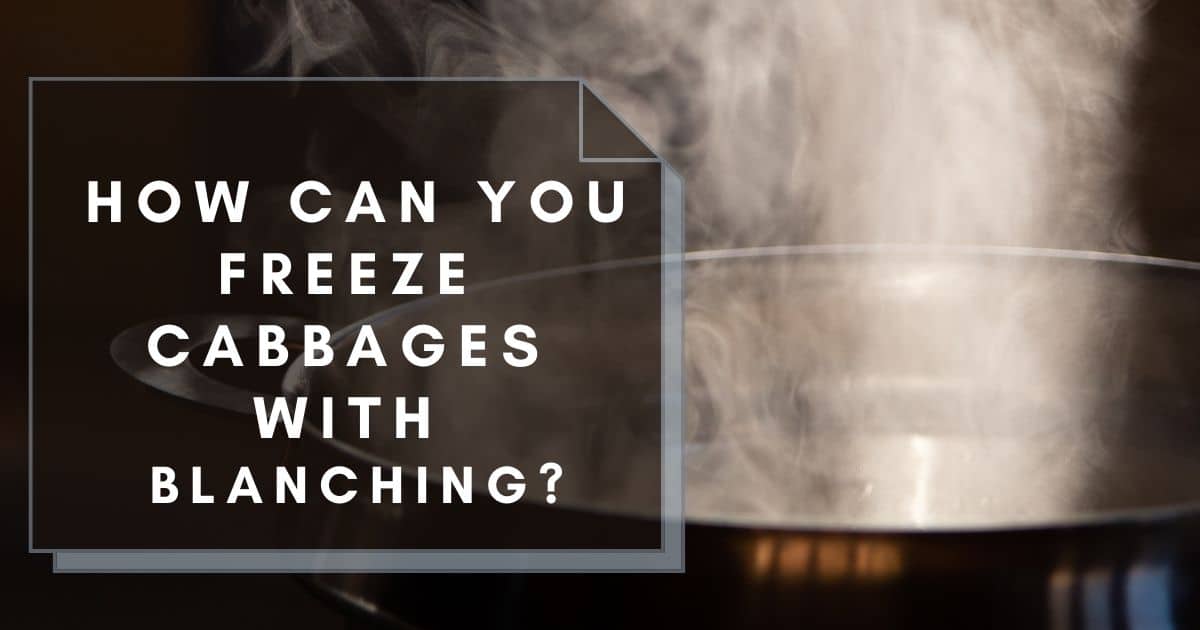
All you need to freeze your cabbages is a sharp knife, cutting board, bowl, stockpot, baking sheet, and air-tight containers or freezer bags. After you gather all the required tools, you are ready to start the freezing and blanching process.
Blanching is the process of exposing vegetables to boiling water for a few minutes and then cooling them in cold water to prevent them from cooking. To freeze cabbage, you need to blanch it first. Here is a step-by-step guide on how to freeze cabbages with blanching.
Step 1:
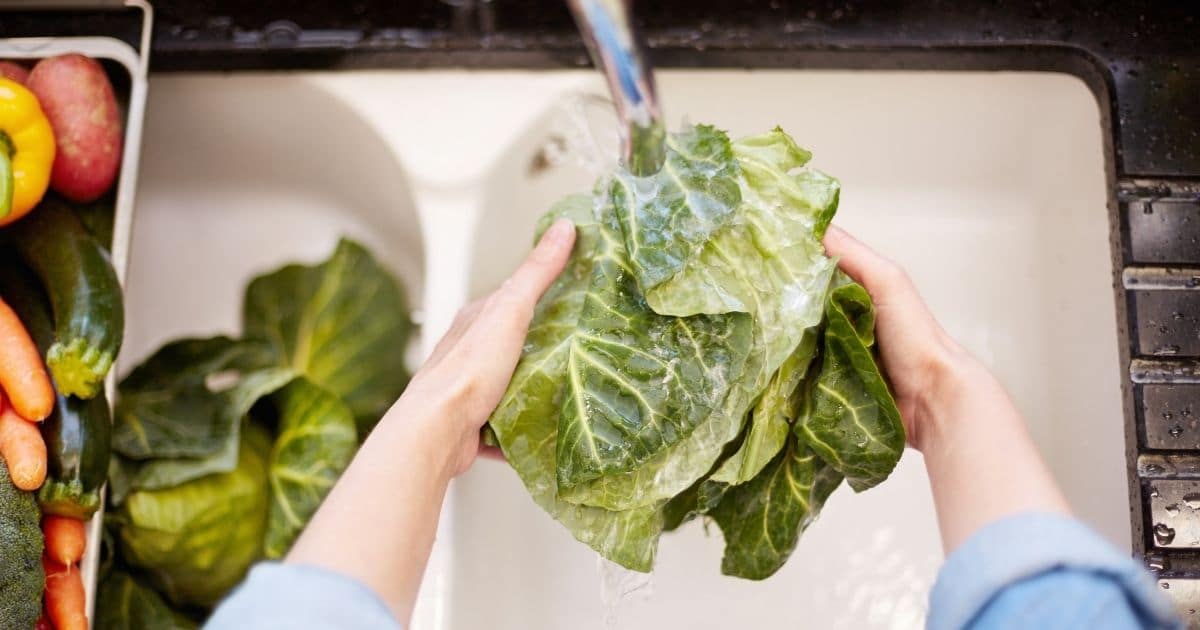
First, wash, soak, and rinse the cabbages. If you are using cabbages from your vegetable garden or bought them straight from the farmers’ market, you need to soak them properly before freezing. First, remove the outer leaves and then rinse the head of cabbage thoroughly. Soak the whole cabbage for 30 minutes in cold water to get rid of any grit or worms.
Again, if you are freezing the cabbage whole along with the bulb, you need to rinse it and soak it properly. Let the cabbage soak in cold water for 1 to 3 hours. Add a bit of salt to the water.
In the case of freezing store-bought and chopped cabbages, you don’t need to go through the soaking process. All you have to do is rinse the cabbages thoroughly.
Step 2:
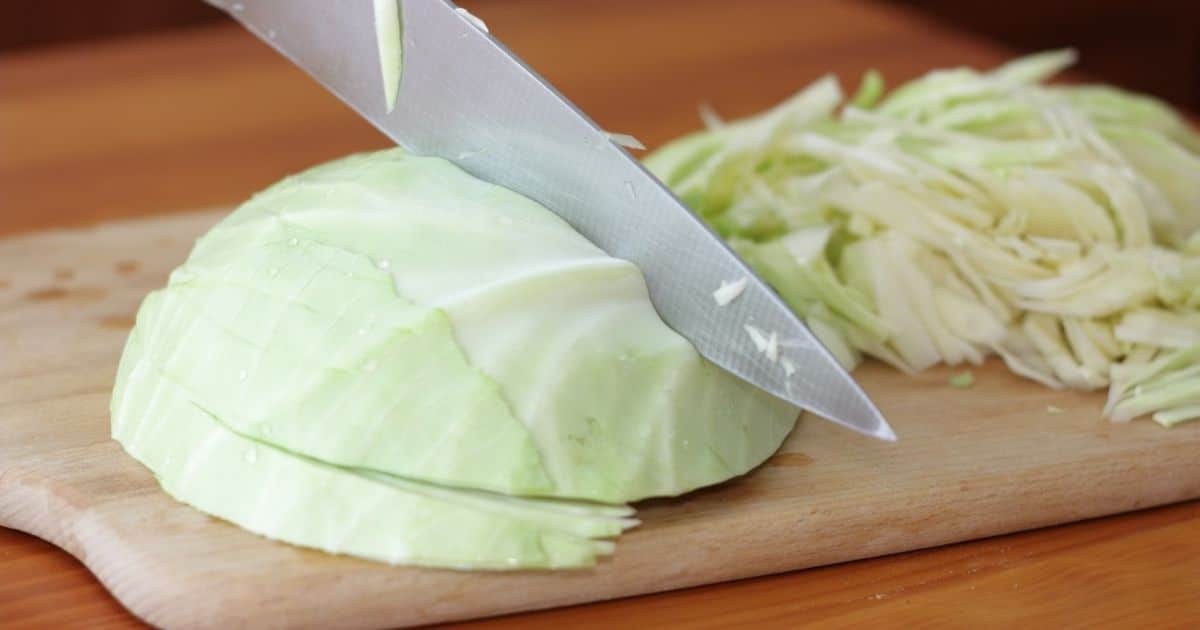
Next, slice the cabbage to your desired size.
Before blanching, you need to chop and slice your cabbages. Cabbages chopped and sliced into wedges, shreds or leaves can be blanched.
If you are unsure about how you will use the cabbage, later on, you should chop it into wedges. That way, after freezing, you can slice it up however you want. Make sure to keep the core intact as it holds the cabbage leaves together.
If you want to leave your cabbage whole, then all you need to do is remove the outer leaves. You do not need to blanch it. Keep the bulb of the cabbage intact while freezing for best results.
Step 3:
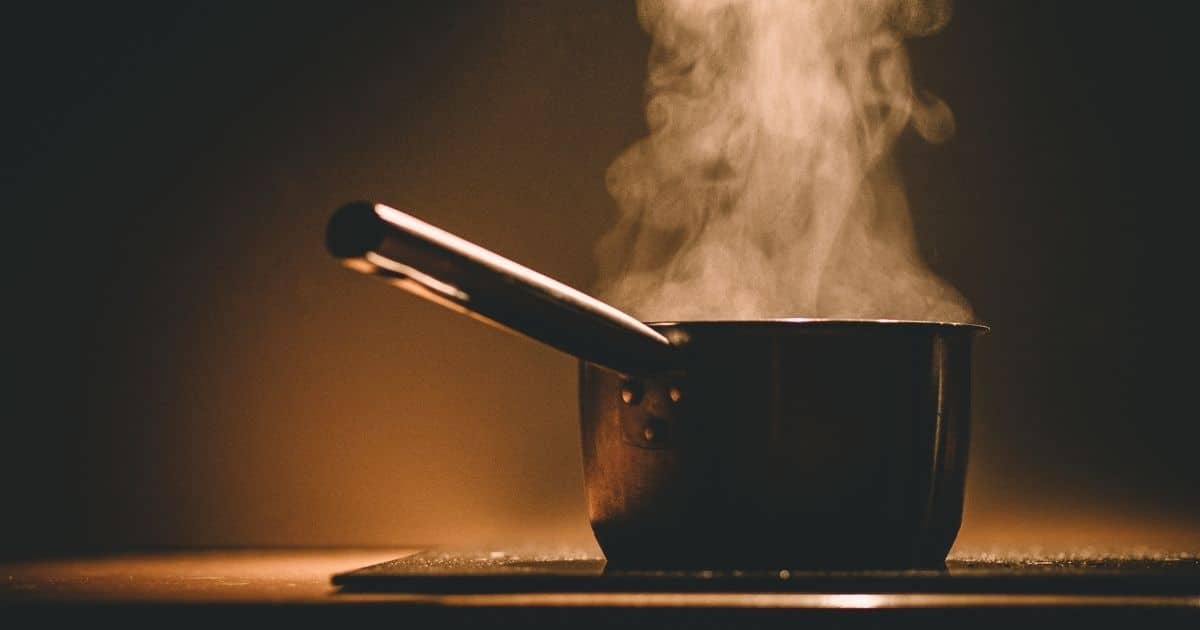
After you are done chopping and portioning your cabbages, it’s time for blanching. In a large stockpot, heat the water at a high temperature until it begins to boil. Once the water starts boiling, drop in your chopped cabbages.
The amount of time needed for the cabbages to boil depends on how they are chopped. If your cabbages are shredded, boil them for 1.5 minutes. If the cabbages are in wedges, boil them for 3 minutes.
After 1.5-3 minutes in boiling water, take the cabbages out and place them in cold water. This process cools the cabbages and stops the cooking process. It is a crucial step for keeping the cabbages from over-cooking and preserving them.
Step 4:
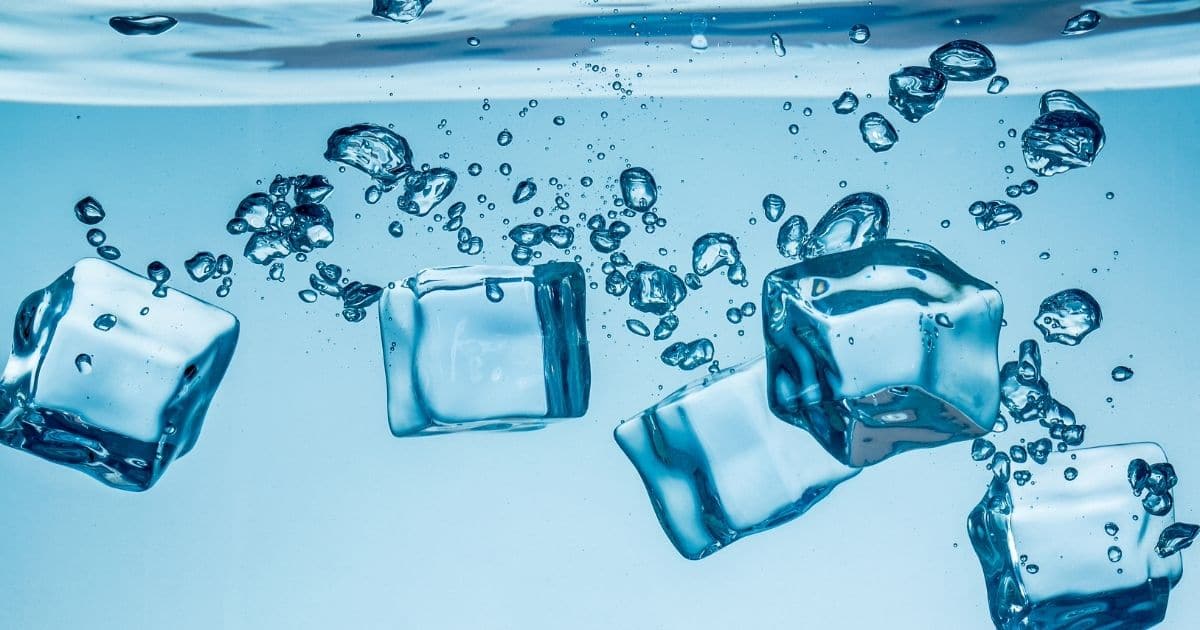
After blanching the cabbages, and before the actual freezing process starts, you need to flash freeze your cabbages. This process will further protect the quality of your cabbages after blanching and reduce harmful bacteria.
First, you need to take the cabbages out of the cold water and shuck off the excess water. If the cabbage is not dry before flash freezing, it will get freezer burn.
Then, lay out a cookie or baking sheet. Spread the cabbage shreds, leaves, or wedges on the baking sheet. Flash freeze the cabbages for 6 to 8 hours before taking them out.
Step 5:

Finally, place the cabbages into bags and continue freezing them.
After flash freezing, cover the cabbages in plastic wrap. Then put the cabbages in an air-tight container or freezer bag. Seal the freezer bags carefully, squeezing out all of the excess air.
Then label and date the bags of cabbage and put them in the freezer. The cabbages in the freezer can last 9 months maximum depending on how well you blanched and bagged them.
If you wish to store your cabbages throughout the year, you should blanch them before freezing.
How Can You Freeze Cabbage Without Blanching?
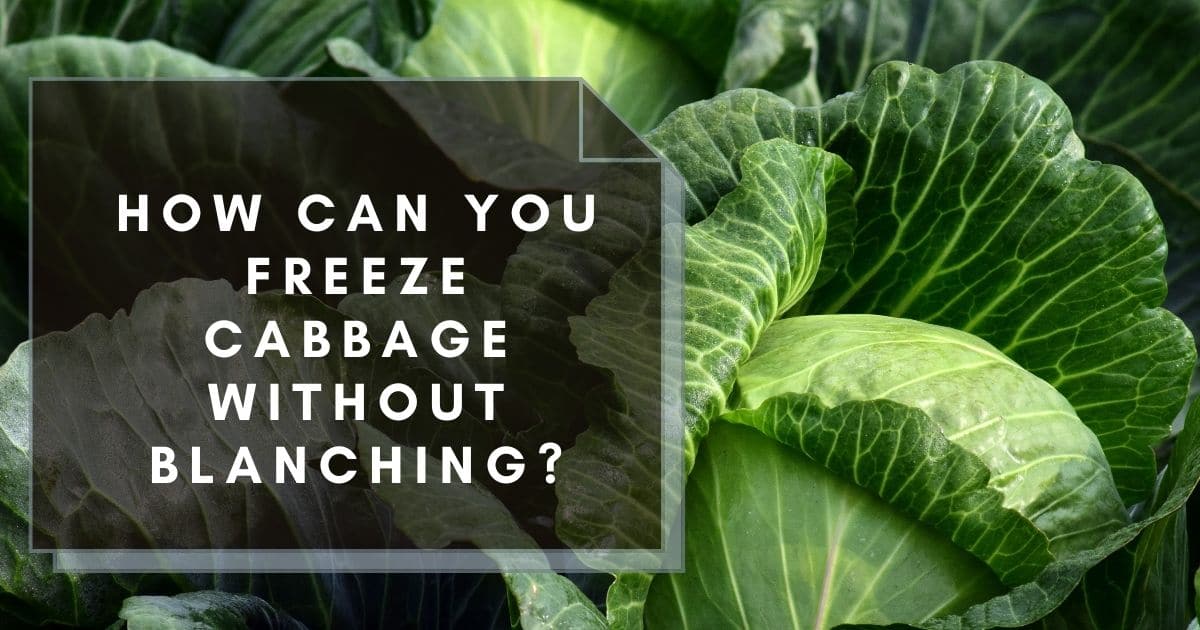
For a short period, it is possible to freeze and preserve cabbages without blanching. In this case, fresh cabbages with green leaves and no blemishes must be used. You will need a large bowl, sharp knife, air-tight containers, freezer bags, cutting boards, and plastic wraps or foil.
To freeze without blanching, use whole, sliced, or even shredded cabbages. Regardless of whether or not they are blanched, the freezing process for cabbage is the same.
First, soak and rinse the cabbage after removing the outer leaves. Then, decide whether you want to slice your cabbage into wedges, shreds, or leave it whole.
After you are done slicing and portioning the cabbage, you need to lay a baking sheet on a tray. Place your chopped cabbage on the tray and flash freeze it in the freezer. Keep the portions of cabbage inside the freezer for around 6 to 12 hours.
Finally, wrap the portions in plastic wrap and place them in air-tight containers or freezer bags. If you choose to use air-tight containers to preserve the cabbages, surround the box with foil before placing it in the freezer. You can keep the frozen cabbages in the freezer without blanching them for around 8 weeks.
Freezing cabbage without blanching is much simpler and more straightforward. If you wish to store your cabbages for a shorter period, then this method is perfect for you.
How To Prepare Frozen Cabbage?
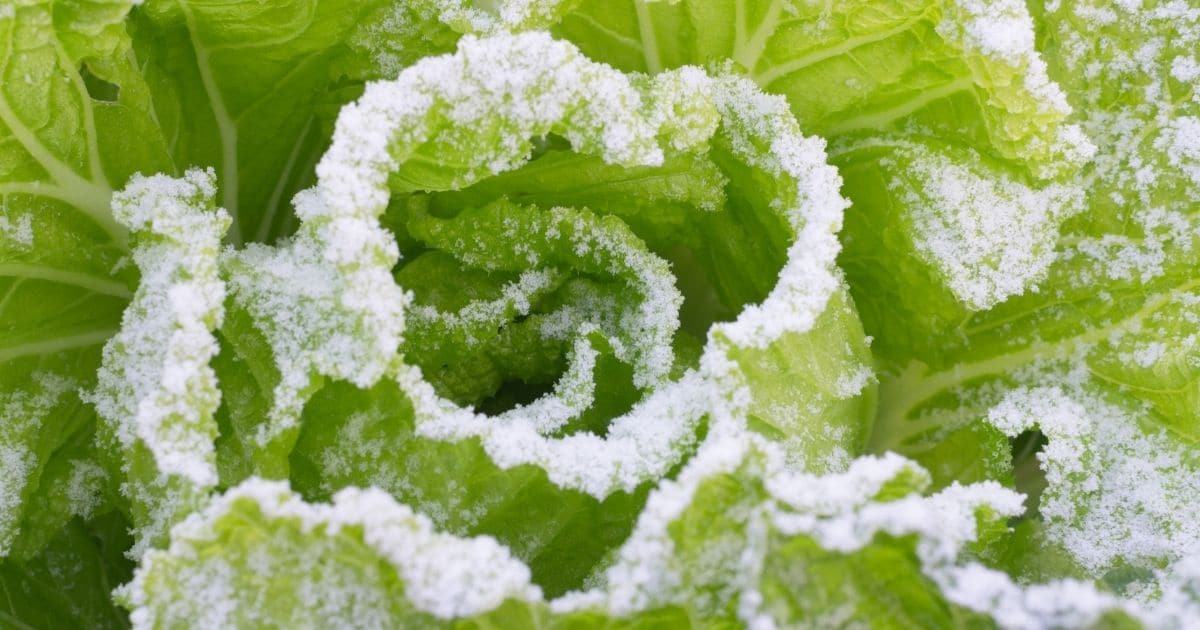
From cabbage wraps to curries, you can make just about anything with your frozen cabbages. There are no limitations as to how you can use your frozen cabbages. One thing to keep in mind is whether you have to thaw your cabbages or not.
The best thing about using frozen cabbage is that you don’t need to thaw it. The texture of most vegetables after freezing and thawing becomes softer. However, in the case of cooking frozen cabbages, you do not need to spend time thawing them.
If you are making cabbage soup or casseroles, you can add the cabbages directly from the freezer to the cooking pot or dish. If you plan on using raw or uncooked frozen cabbages, you need to thaw them overnight in your refrigerator.
If you are making coleslaws, cabbage rolls, or other salads, you need to thaw your frozen cabbages. However, if your cabbages are not too frozen, you can use them to prepare any desired dish.
Can You Freeze Cooked Cabbages?
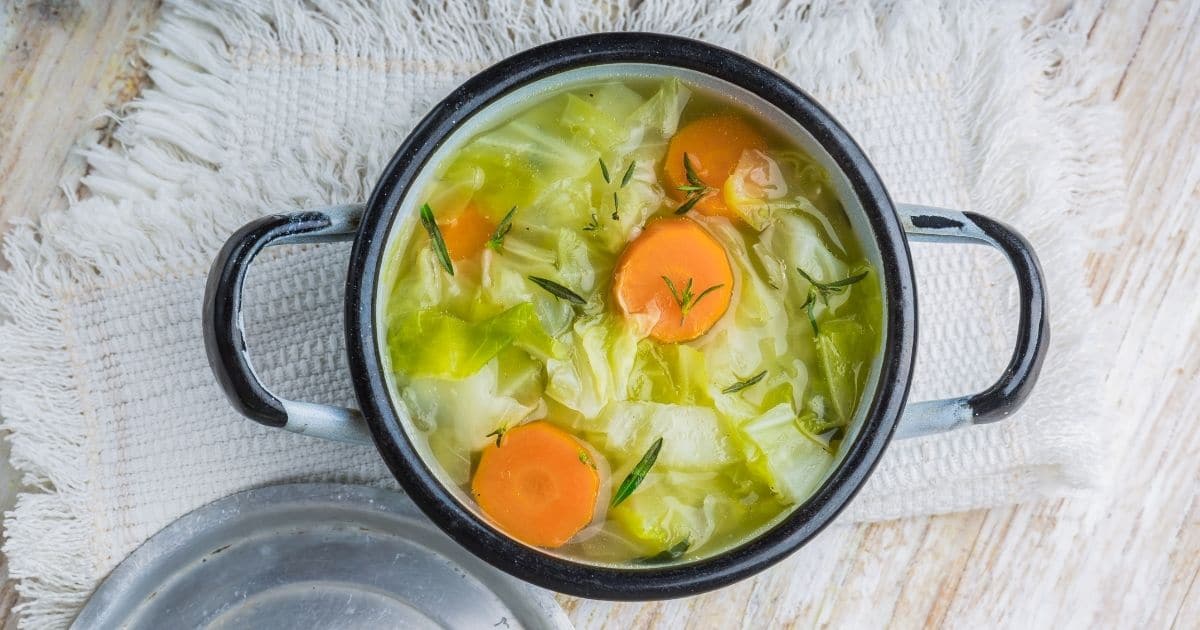
You do not need to cook your cabbages before freezing them. Though, if you want to freeze your cooked cabbage dish, you can certainly do so.
If you want to freeze your left-over cabbage dishes such as cabbage wraps or rolls, place them inside an air-tight container or freezer bag. Then place the bags in the freezer. When you are ready for more, remove the bags from the freezer and let them thaw for a while. Once the dish has had time to thaw, remove it from the bag or container, reheat it, and you are good to go.
If you want to freeze cooked cabbages that have not been mixed with any sauces or food, first dry them properly on a paper towel. Then flash freeze them for 20 minutes until they harden. Lastly, put them inside a freezer bag and place them in the freezer.
Conclusion
Cabbage is a nutritious and versatile vegetable. So why should you have to miss out on it throughout the year? Thankfully you don’t. With just a little bit of effort on your part, you can easily freeze cabbages and enjoy them all year round.
Now, with a little help from the information provided, you can freeze cabbages all on your own. Wishing you good health!